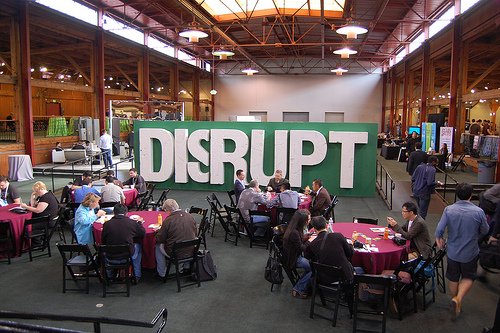Editor’s note: This is a cross post from Mark Evans Tech written by Mark Evans of ME Consulting. Follow him on Twitter @markevans or MarkEvansTech.com. This post was originally published in April 17, 2012 on MarkEvansTech.com.

![]() Some rights reserved by Kevin Krejci
Some rights reserved by Kevin Krejci
I had coffee recently with a VC who talked about how “disruptive technology” was a key part of his firm’s investment approach.
On the surface, it makes sense. After all, “disruptive” is impressive because it sounds like something that could make a difference and, in the process, attract a lot of users and be worth a lot of money.
But after thinking about it, I began to wonder what “disruptive” really means and, in particular, what makes a startup truly disruptive. Is it a product that leaps ahead of the competition in a major way? Is it a product that solves a problem or a need in a new or different way? Is it a product that’s easier to use or less expensive than what exists?
- Is Wave Accounting, for example, disruptive because it launched a free online accounting service into a market in which most players were offering a fee-based service?
- Is 500px disruptive because its elegant and service displays photographs so beautifully.
- Is Engagio disruptive because it offers a “social inbox” at a time when people are getting messages from multiple sources.
In many respects, “disruptive” can be defined in many ways. This makes it an alluring but, arguably, difficult creature to discover and identify. For one investor, disruptive may be one thing but it entirely different from another investor.
The problem with “disruptive” is it’s a sexy term for entrepreneurs and investors to throw around. Suggesting your product is “disruptive” is easy to do and get away with because it can be difficult to argue otherwise because “disruptive” is so slippery. How many times have you heard an entrepreneur proclaim their technology is “disruptive”?
The reality is we love “disruptive” because it’s elusive, multi-faceted and difficult to pinpoint until a startup enjoys success. Then, everyone can confidently say: “I know Instagram/Pinterest/Path, etc. was disruptive when I first saw it”.
So, how do you define “disruptive”?
Editor’s note: This is a cross post from Mark Evans Tech written by Mark Evans of ME Consulting. Follow him on Twitter @markevans or MarkEvansTech.com. This post was originally published in April 17, 2012 on MarkEvansTech.com.
